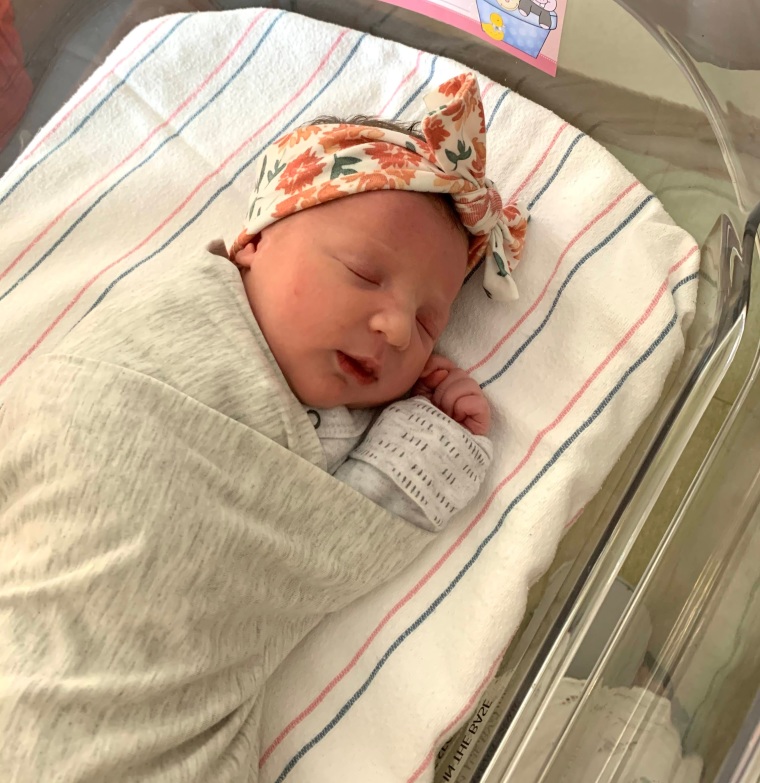Molly Everette Gibson is the first baby born at 28 years old, but she won’t be the last, according to Mark Mellinger of the National Embryo Donation Center.
Before she was born, Molly was frozen by her genetic parents for more than 27 years. They donated her (as an embryo) to the NEDC so she could be born to another set of parents, Mellinger, marketing director for the NEDC, told The Christian Post.
Molly is described as a healthy infant who weighed 6 pounds, 13 ounces and measured 19 inches long at birth. Based on her embryonic age, she is 28, since her embryo was frozen on Oct. 14, 1992.
“[Her parents, Ben and Tina Gibson, are] doing really well. I still think they’re in a little bit of amazement. This was a couple who, if you had asked them five years ago if they could have a baby, they probably would have laughed at you,” said Mellinger. “They’re just exhausted by media interviews. They’ve just run out of things to say.”
To help couples who are unable to conceive, doctors unite the eggs and sperm of couples in laboratories to create embryos. Often, they try to conceive as many embryos as possible to make the treatment efficient, he said. The remaining embryos are then frozen and stored after the parents give birth to their desired number of children.
Molly’s birth beats the odds in multiple ways. Miscarriages among babies born using in vitro fertilization are slightly more likely than with natural pregnancies. The numbers for known miscarriages suggest that IVF results in 2% higher miscarriage rates than natural pregnancy, verywellfamily.com reported.
Roughly 1 million embryos wait frozen across the United States, according to the NEDC website. Few statistics on these tiny lives exist, but Mellinger estimates that only 40,000 to 60,000 ever grow up. Some parents destroy their embryos, and others donate them to be used in science experiments, but the majority leave them frozen because they don’t know what to do with them.
“As a pro-life organization, we believe that what [Molly’s birth] shows, first of all, is God’s heart for life,” Mellinger said. “The freezing techniques back then [were] not as good as they are now. However, if embryos were frozen properly and cared for properly in the interim, they can come to birth and be perfectly normal, happy children. The shelf life of frozen embryos might be infinite.”
Molly’s older biological sister, Emma Wren Gibson, was also frozen before her birth. Born three years before Molly, she was frozen for over 24 years.
Embryologists at NEDC say it’s likely an embryo will soon be born after 30 years frozen, Mellinger said. Molly is the oldest known baby born. Statistics on frozen embryos are uncommon, but no one seems able to show an older baby, he added.
In the U.S., there are no laws that forbid the creation of excess embryos using IVF, Mellinger told CP.
“There are actually very few laws governing reproductive medicine. In America, there just are not a lot of regulations concerning the practice,” he said.
U.S. law considers embryos property, not people, Mellinger said. The word "adoption" applies to them because it fits the circumstance. When couples adopt one, it’s considered a property transfer, and the baby has the names of the birth parents, not the genetic parents, on the birth certificate.
“The genetic parents relinquish all rights and claims of ownership when we take custody of the embryos,” he said. “They are Ben and Tina’s from the moment of birth and before.”
NEDC leads the world in births facilitated through embryo adoption, with 1,013 births to its record, its website reads. Working to thaw embryos and place them in women allows embryologists to hold life in their hands, Mellinger said.
“I’ve heard our embryologist Carol Sommerfelt talk about how extremely humbling it is,” he said. “She has a real heart for this. She has said many times, ‘I see miracles happen every day.’”
Mellinger said that pro-life and pro-adoption people should find common ground in supporting the embryo adoption movement. Although many Christians question the ethics of IVF, it’s clear that embryos need parents, he added.
“Each believer has to carefully consider where he or she falls on [the morality of IVF]. It’s not something that the Bible obviously addresses in an explicit way. It’s a matter of conscience. I think embryo adoption is a needed practice. The bottom line is, the lives are here. These tiny, frozen lives are here.”

No comments:
Post a Comment